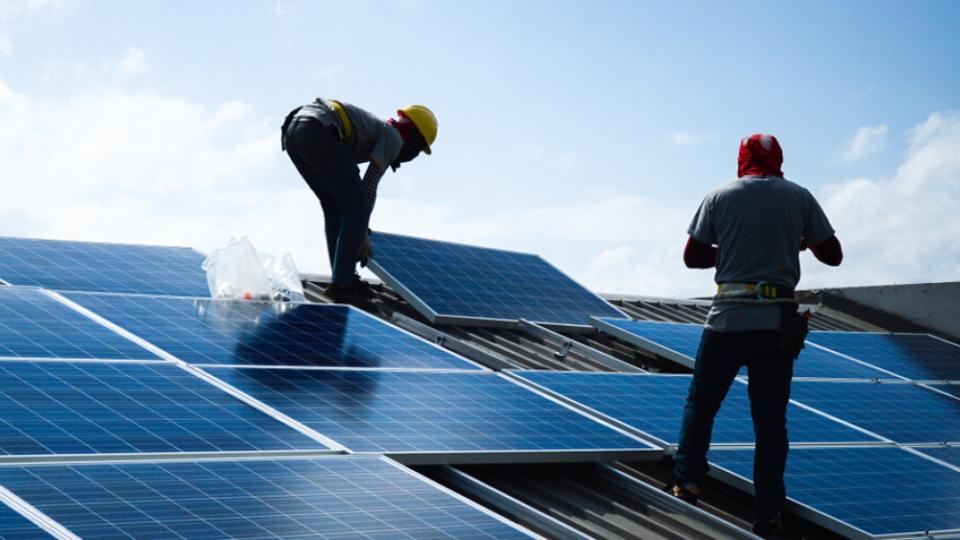In the face of climate change and the ever-rising cost of electricity, homeowners are beginning to seek alternative sources of energy for their homes. Solar energy is a renewable and cost-effective solution that more and more people are turning to.
Solar energy is energy that is produced by the sun. This energy can be harnessed in a number of ways, including through the use of solar panels. Solar panels are made up of photovoltaic cells, which convert the sun's energy into electricity. This electricity can be used to power your home, reducing your reliance on traditional fossil fuels.
Benefits of Solar Energy
- Cost Savings: One of the most significant advantages of solar energy is the cost savings. By producing your electricity, you will reduce your monthly utility bills and potentially save thousands of dollars over the life of the system. The initial investment in solar panels may seem high, but many homeowners see a return on investment in just a few years.
- Renewable Energy: Solar energy is a renewable source of energy that does not produce harmful pollutants or greenhouse gases. By using solar energy, you are reducing your carbon footprint and contributing to a greener planet.
- Energy Independence: Producing your electricity means you are not reliant on the grid and are less vulnerable to power outages. In the event of a blackout, homes with solar panels can continue to operate as long as their battery storage has power.
- Increased Property Value: Homes with solar panels have been known to sell for higher prices than non-solar homes. By investing in solar energy, you are making a valuable upgrade to your property that can increase its market value.
- Government Incentives: The government offers tax credits and incentives for homeowners who install solar panels. Depending on where you live, you may also be eligible for state or local incentives.
How it Works
Installing solar panels involves several steps, including:
- Consultation: The first step is to consult with a solar energy company to determine if your home is a good candidate for solar panels. A technician will assess your home's location, roof angle, and shading to determine the optimal placement and size of the system. They will then provide you with a quote for the system's cost, installation, and estimated energy savings.
- Permitting: Before installation, the solar company will obtain any necessary permits from local authorities.
- Installation: The installation process typically takes one to three days and involves mounting the solar panels on your roof. The panels will be connected to an inverter that converts the direct current (DC) electricity to alternating current (AC) electricity that can be used in your home.
- Inspection: After installation, the system will be inspected to ensure that it meets all local codes and safety requirements.
- Interconnection: The solar company will arrange for the system to be connected to the grid. This involves obtaining permission from your utility company to allow the system to send excess energy back into the grid.
- Monitoring: Once the system is up and running, it will be monitored to ensure that it is producing the expected amount of energy. Any issues will be addressed promptly by the solar company.
Maintenance
Solar panels require minimal maintenance, but there are a few things you can do to ensure that your system is working correctly:
- Clean Panels: Dirty solar panels can reduce the amount of energy they produce. It's important to clean your panels regularly with a soft brush or sponge and water.
- Trim Trees: Trees and other obstructions can cause shading on your solar panels, reducing their efficiency. Trim any overhanging branches that could cast shade on your panels.
- Professional Inspection: Have your system inspected by a professional every year to ensure that it is working correctly.
- Battery Maintenance: If your system has a battery, make sure it is well maintained. A poorly maintained battery can reduce the system's efficiency and lifespan.
- Check Inverter: Check your inverter regularly to ensure that it is functioning correctly. Inverters are the most common cause of solar system failures.
Solar energy is a smart and environmentally friendly solution for homeowners who want to save money on their energy bills and reduce their carbon footprint. With government incentives, cost savings, and increased property value, the benefits of solar energy are clear.
If you're interested in empowering your home with solar energy, schedule a consultation with a TrustDALE Certified solar energy company today. With the right system and maintenance, you can enjoy the benefits of solar energy for years to come, and remember, you're always protected by Dale's trademark $10,000 Make It Right Guarantee.

